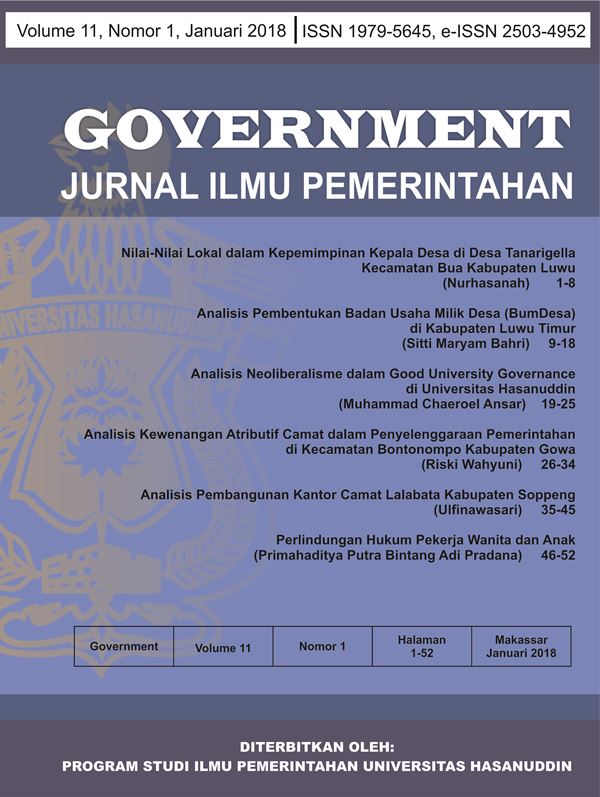Analisis Neoliberalisme dalam Good University Governance di Universitas Hasanuddin
DOI:
https://doi.org/10.31947/jgov.v11i1.8022Keywords:
neoliberalism, good university governance, unhasAbstract
Ideology as a basic process, globally leading to neoliberalism, ideological circle is the main thing to be reckoned with. The Unitary State of the Republic of Indonesia was founded with the spirit of Pancasila, which is based on the value of mutual cooperation. Therefore, this study aims to know and analyze the existence of neoliberalism in contextualization of good university governance (GUG) and also to know from the existence of neoliberalism in GUG at Hasanuddin University. This research uses a qualitative approach that puts emphasis on text and image data. Based on the research process, it can be concluded that the existence and measurement of neoliberalism in GUG at Hasanuddin University is evidenced through a process of higher education reform that encourages autonomy and manages non-APBN information sources, enabling access to universities to enter the market. Furthermore, the impact is greater than academic and non academic policies, efforts to increase environmental awareness, deregulation, commodification, through good university governance with participative, transparency, and accountability at Hasanuddin University.Downloads
Download data is not yet available.
References
Abrahamsen, R. (2004). Sudut Gelap Kema-juan.Jogjakarta: Lafadl Pustaka. Hal. 78.
Darmaningtyas, & Dkk. (2014). Melawan Lib-eralisme Pendidikan. Malang: Madani. Hal. 42
Hill, D. (2006). Education Services Liberaliza-tion. Winners or Loser? Liberalizing Public Services, Hal. 7.
Harrison, L. (2009). Metodologi Penelitian Politik. Jakarta: Kencana. Hal. 104
Muhammadiah. (2013). Partisipasi Publik Se-bagai Strategi Mewujudkan Good Gov-ernance. Otoritas, III No. 1, Hal. 59.

